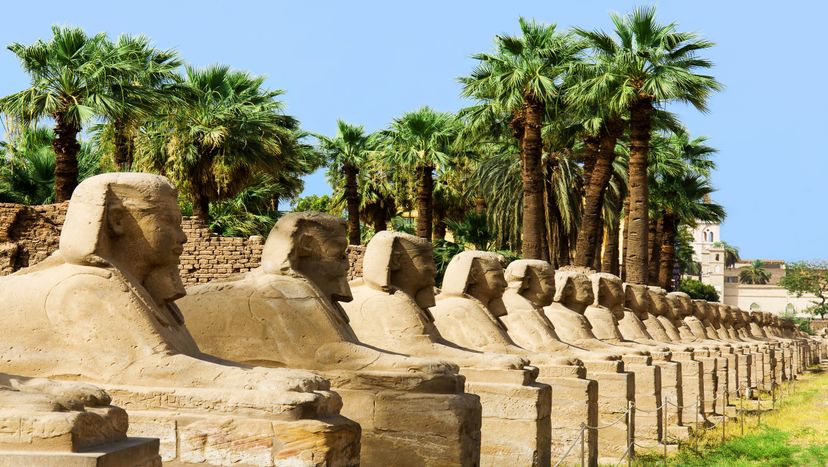At the heart of the Egyptian astrological tradition were 12 distinct zodiac signs, each associated with a specific Egyptian deity and imbued with its own unique set of characteristics and influences. Unlike the Western zodiac, which is based on the 12 constellations of the ecliptic, the Egyptian system drew upon the 36 decans that rose consecutively over the course of the year.
Each of these 12 Egyptian zodiac signs was represented by a powerful god or goddess, from the life-giving Nile to the warlike Sekhmet. By understanding the nature and attributes of these deities, the Egyptians believed they could gain profound insights into the personalities, strengths, and challenges of those born under their influence.
The Nile (Hapi)
Dates: January 1-7, June 12-18, September 1-7, and November 18-26 Represented by the god Hapi, the Nile sign is the only one in the Egyptian zodiac not associated with a specific deity. Instead, this sign is linked to the very source of life in ancient Egypt - the mighty Nile River. Those born under the Nile sign are believed to possess a deep connection to the natural world, with a practical, logical, and peaceful nature. They are excellent observers and analysts, always seeking to understand the world around them and make wise decisions.
Amun-Ra
Dates: January 8-12 and February 1-11 The second sign of the Egyptian zodiac is Amun-Ra, named after the powerful creator deity who was the king of the gods. Individuals born under this sign are known for their confidence, politeness, and optimism. They make excellent leaders, possessing the intelligence and resolve to make smart decisions and keep everything under control.
Mut
Dates: January 22–31 and September 8–22 Representing the maternal goddess Mut, this sign is associated with sensitivity, affection, and loyalty. Those born under Mut are often described as generous, focused, and protective, with a deep desire to nurture and care for others. They may be shy at first, but once they open up, they are known for their wisdom and devotion.
Geb
Dates: February 12–29 and August 20–31 The earth god Geb lends his name to this sign, which is linked to emotional, intuitive, and spiritual individuals. Geb-born people are often highly sensitive and empathetic, with a strong connection to the natural world. While they may struggle with self-control at times, they are renowned for their reliability and loyalty as friends.
Osiris
Dates: March 1–10 and November 27–December 18 Representing the god of the underworld and rebirth, the Osiris sign is associated with intelligence, independence, and a strong sense of self. Those born under this sign are often driven and persistent, willing to overcome any obstacle to achieve their goals. However, they may also struggle with selfishness and a tendency to put their own needs first.
Isis
Dates: March 11–31, October 18–29, and December 19–31 As the goddess of nature, magic, and motherhood, Isis lends her name to this sign, which is linked to honesty, humor, and a genuine love of life. Isis-born individuals are often sociable and outgoing, with a knack for seeing the best in others. They may, however, struggle with a sense of obligation and a tendency to "play the martyr."
Thoth
Dates: April 1–19 and November 8–17 The god of wisdom and learning, Thoth, is the patron of this sign, which is associated with intelligence, diplomacy, and a relentless drive for self-improvement. Those born under Thoth are often quick learners and adaptable, but they can also be highly opinionated and struggle to listen to new ideas that challenge their existing beliefs.
Horus
Dates: April 20 – May 7 and August 12–19 As the god of the sky, Horus lends his name to this sign, which is linked to bravery, optimism, and a strong work ethic. Horus-born individuals are often ambitious and action-oriented, tackling challenges head-on with a belief in their own abilities. However, they can also be stubborn and may have difficulty accepting help or alternative perspectives.
Anubis
Dates: May 8–27 and June 29 – July 13 The jackal-headed god of the underworld, Anubis, is the patron of this sign, which is associated with confidence, introversion, and a fascination with the darker aspects of life. Anubis-born people are often comfortable with the macabre and may gravitate towards fields like psychology or medicine, where they can put their keen insights to use.
Set
Dates: May 28–June 18 and September 28–October 2 Representing the god of chaos and violence, Set lends his name to this sign, which is linked to perfectionism, ambition, and a love of change. Set-born individuals are often highly driven and hardworking, with a strong desire to be the best. However, they may also struggle with a tendency towards selfishness and a resistance to compromise.
Bastet
Dates: July 14–28, September 23–27, and October 3–17 The goddess of cats, fertility, and pleasure, Bastet, is the patron of this sign, which is associated with balance, charm, and a natural aversion to conflict. Bastet-born individuals are often skilled at maintaining harmony in their lives and relationships, and they may have a fascination with the occult or metaphysical realms.
Sekhmet
Dates: July 29–August 11 and October 30–November 7 As the goddess of war and healing, Sekhmet lends her name to this sign, which is linked to a dual nature of discipline and adventure. Sekhmet-born individuals are often fierce and determined, with a strong moral compass and a tendency to command respect. However, they may also struggle with impatience and a desire for perfection that can be difficult for others to understand.
